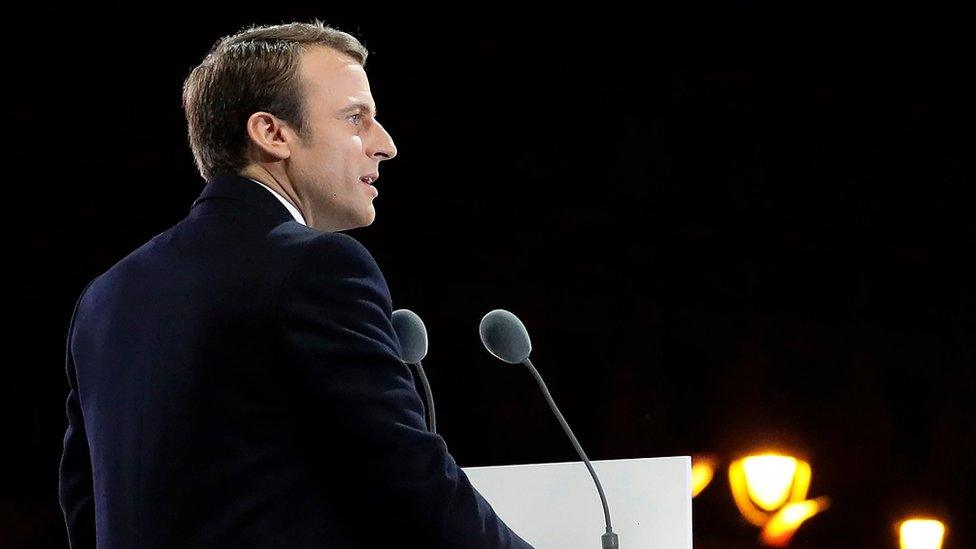France's Macron urges EU to shun nationalism
- Published
"I don't want to belong to a generation of sleepwalkers"
French President Emmanuel Macron has warned that "there seems to be a European civil war" between liberal democracy and rising authoritarianism.
He urged the EU to renew its commitment to democracy, in a passionate speech to the European Parliament in Strasbourg.
"I don't want to belong to a generation of sleepwalkers that has forgotten its own past", he said.
Populists dominated recent elections in states like Hungary and Italy, fuelled by the continuing EU migrant crisis.
Hungary's right-wing Prime Minister Viktor Orban returned to power with a landslide victory earlier this month while Eurosceptic parties caused a political earthquake in Italy in March.
Mr Macron and his liberal La République en Marche (LREM) party triumphed in France's elections last year with a strongly pro-EU platform.
However, the French polls saw record numbers of voters staying away, with turnout of less than 50% at both rounds of the parliamentary election.

Down the yellow brick road?
By Adam Fleming, BBC News, Strasbourg
President Macron used some memorable phrases as he sought to reinvigorate European democracy.
The divisions in Europe were like a "civil war… where there is an increasing fascination with illiberalism".
And was he referring to Brexit when he said that, in response to problems, some proposed a yellow brick road, to take their people off on an adventure somewhere else?
Most striking was his heralding of a new generation that didn't experience World War Two and saw Europe in a different way. But will next year's elections for the European Parliament usher in a wave of MEPs who want to strengthen the EU or to rip it apart? That's the test.

What action is Macron proposing?
In his speech he condemned what he called "a fascination with the illiberal" in Europe.
"I want to belong to a generation that will defend European sovereignty because we fought to obtain it," he said. "And I will not give in to any kind of fixation on authoritarianism."
In 2017, Mr Macron's main challenger was National Front leader Marine Le Pen, a nationalist and fierce critic of the EU.
The French president is launching debates with voters aimed at re-engaging them with the EU.
He also proposed a new European fund to help communities that take in migrants and said France would be willing to pay more into the EU budget to fill the gap left by the departure of the UK.
In a debate with MEPs after his speech Mr Macron said he wanted to keep the UK close to the EU despite Brexit but there was to be "no cherry-picking in the single market".
He said there must be "full respect" for the freedoms of the EU single market: free movement of goods, services, capital and people.
How does Macron see relations with Germany?
He identified some key areas of "European" - rather than national - sovereignty: tackling climate change and environmental problems, health, minority rights and privacy.
He wants France and Germany to be in the vanguard of ambitious eurozone reforms, including turning the bailout fund - the European Stability Mechanism - into a European Monetary Fund, like the IMF.
The idea is that an "EMF" could tackle a country's debt problems and other financial crises before they spread to the rest of Europe.
However, German Chancellor Angela Merkel's Christian Democrats are wary of any scheme that could make richer countries liable for the debts of poorer partners.
What challenges does the EU face?
Mr Macron's set-piece speech in Strasbourg set out his vision for democratic renewal in the EU, at a time of growing nationalism in the 28-nation bloc.
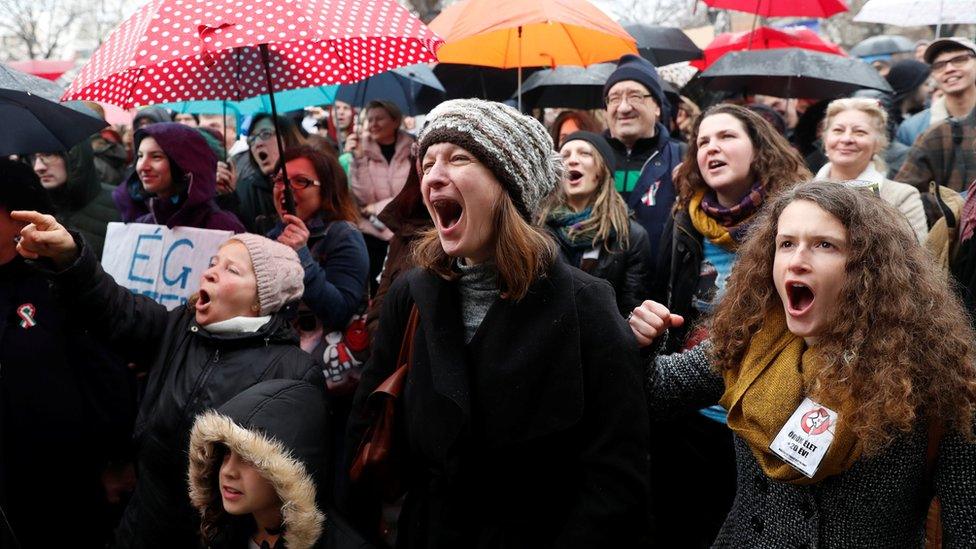
Anti-government protesters at a rally in Hungary before the election
The focus of the migrant crisis has switched from Greece to Italy, where some 600,000 undocumented migrants have arrived by sea in the past four years.
There is also nervousness in the EU about Russian influence on European voters, with many examples of fake news spreading in social media - often blamed on supporters of Russian President Vladimir Putin.
MEPs applauded Mr Macron when he said democracy was a "word with meaning, which emerged from the battles of the past".
He faces a big challenge ahead of the 2019 European elections as the LREM does not belong to any of the main groups in the European Parliament.
A note on terminology: The BBC uses the term migrant to refer to all people on the move who have yet to complete the legal process of claiming asylum. This group includes people fleeing war-torn countries such as Syria, who are likely to be granted refugee status, as well as people who are seeking jobs and better lives, who governments are likely to rule are economic migrants.
- Published12 April 2018
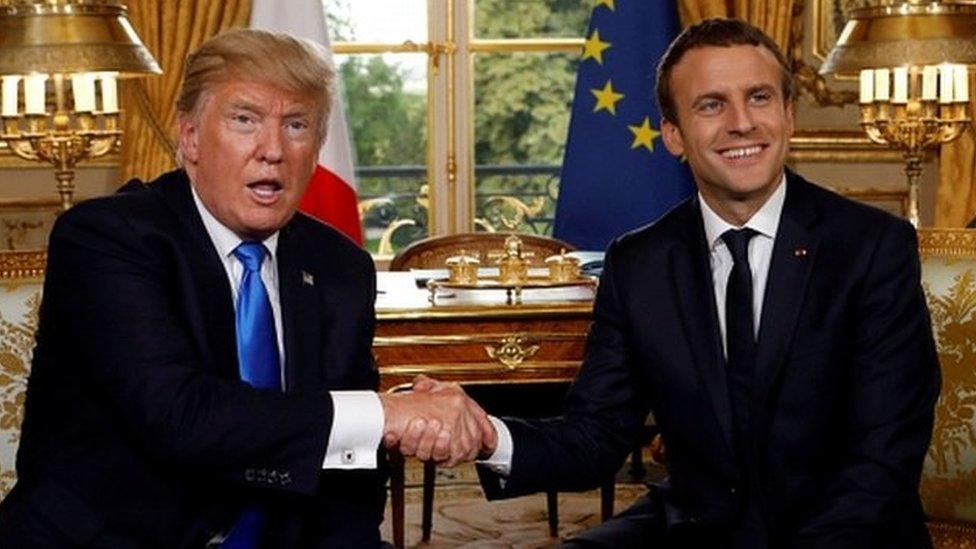
- Published3 April 2018
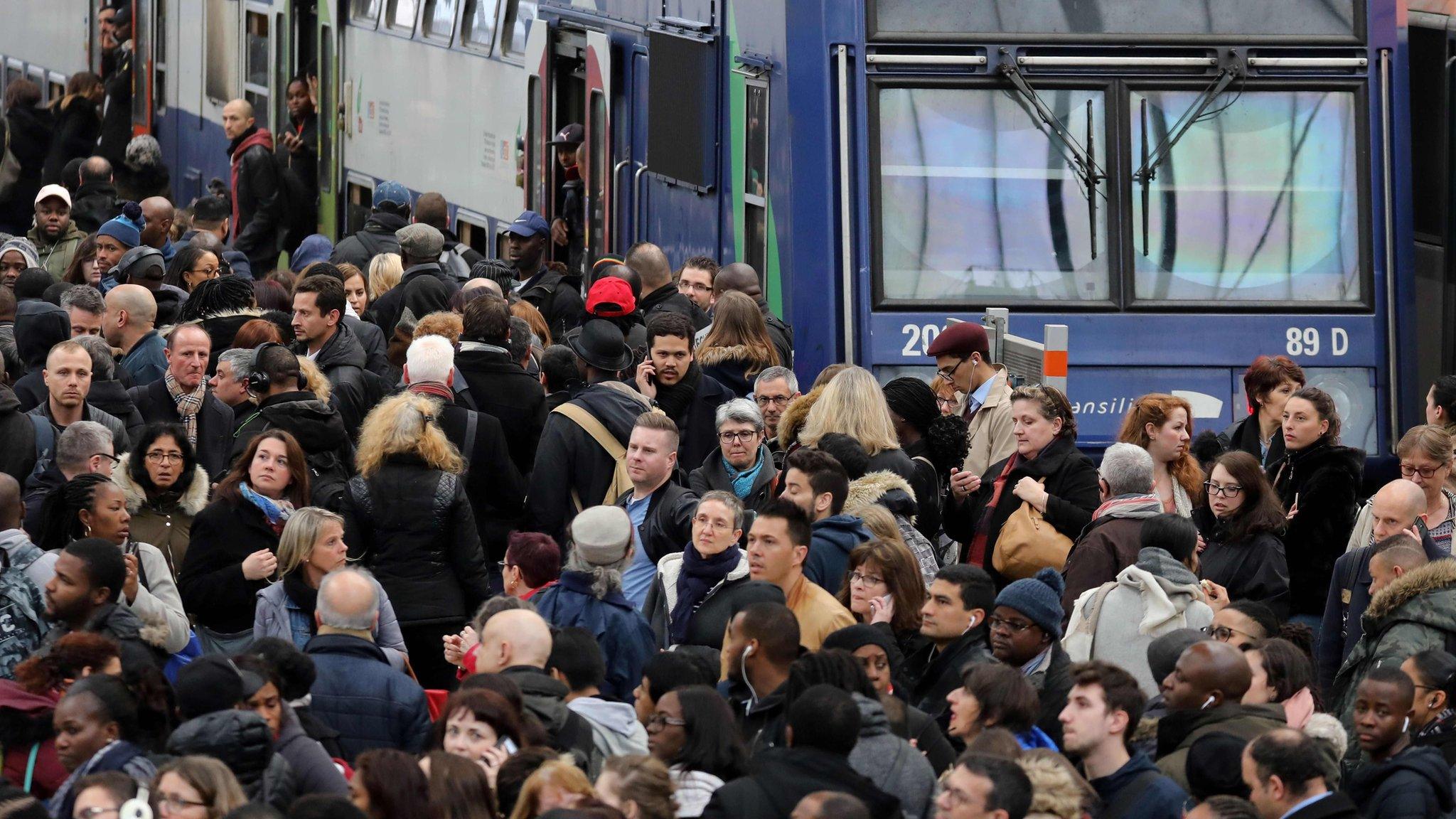
- Published26 September 2017
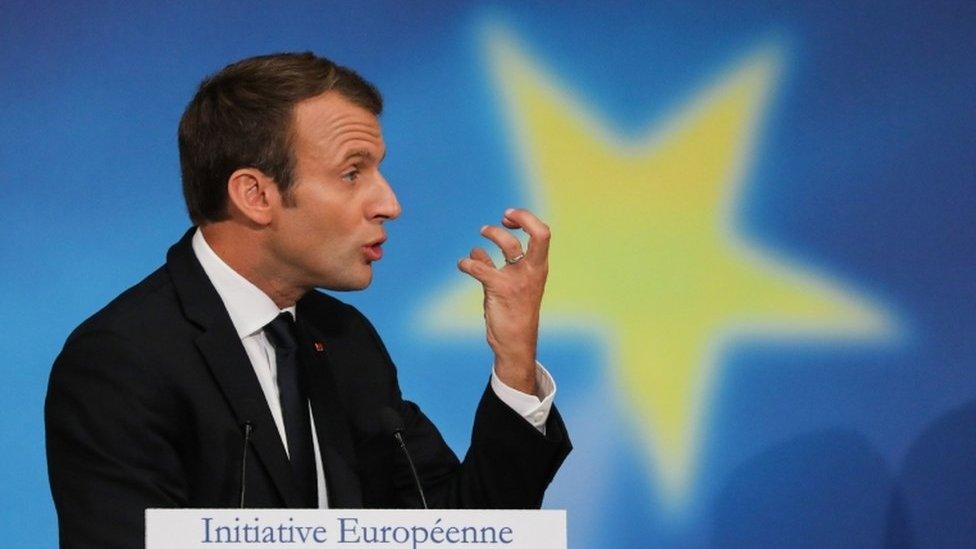
- Published19 June 2017
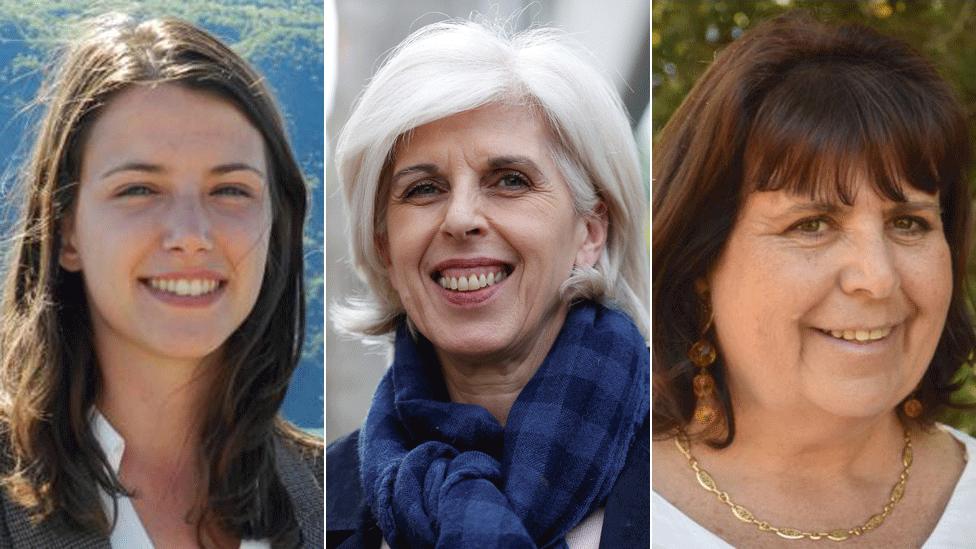
- Published9 April 2018
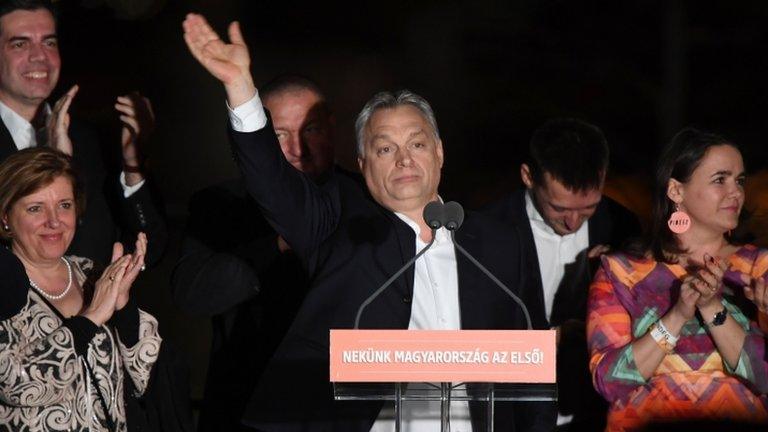
- Published15 May 2017
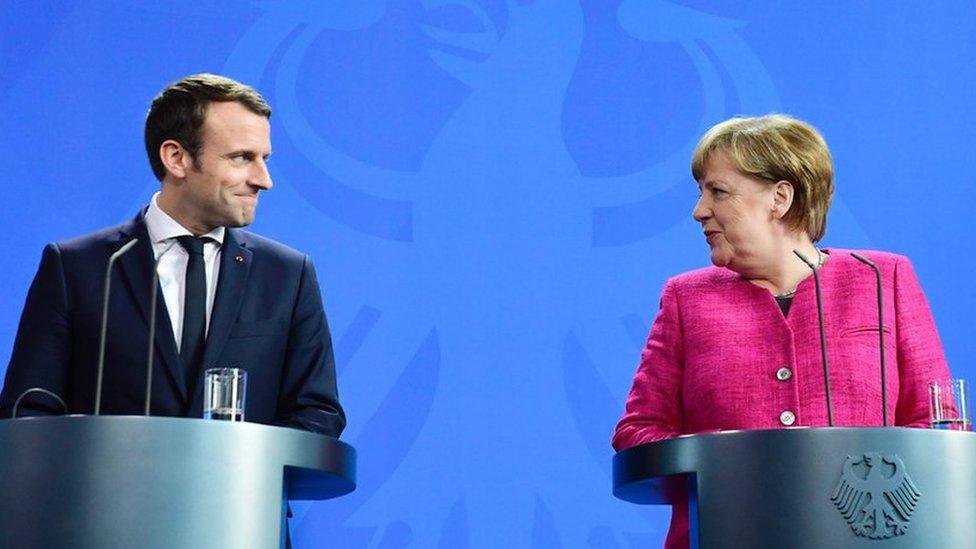
- Published10 May 2017
